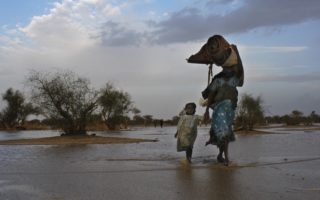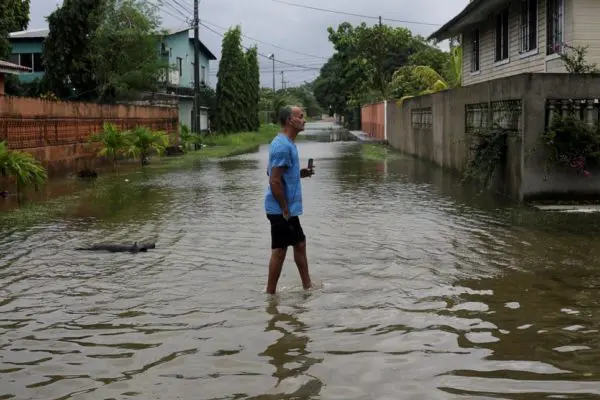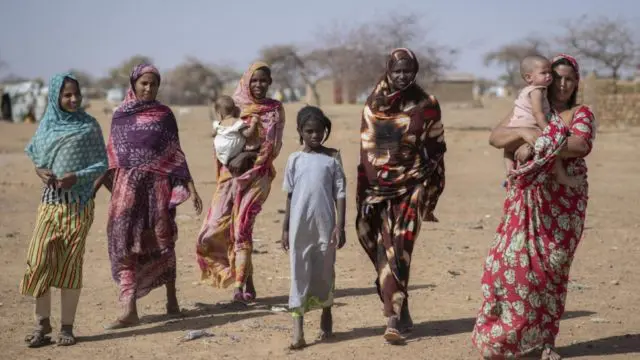Today on Earth Day, UNHCR, the UN Refugee Agency, is releasing a new data visualization ‘Displaced on the frontlines of climate change’ that shows how the climate emergency is converging with other threats to drive new displacement and increase the vulnerability of those already forced to flee.
The data visualization explores how disasters linked to climate change may worsen poverty, food insecurity and access to natural resources in ways that can stoke instability and violence. The impacts of our changing climate are being felt worldwide, but countries already struggling with conflict, poverty and high levels of displacement are dealing with some of the most severe effects. From Afghanistan to Central America, droughts, flooding, and other extreme weather events are hitting those least equipped to recover and adapt.
The visualization provides geographic examples such as:
- Afghanistan where recurring droughts and floods combined with decades of conflict and displacement have left millions of people vulnerable to hunger this year.
- Some of the worst violence and displacement in Burkina Faso has occurred in the poorest, most drought-affected areas where armed groups have exploited tensions over access to dwindling water sources and shrinking arable land.
- Mozambique is experiencing a similar confluence of conflict and multiple disasters with one cyclone after another battering the country’s central region while increasing violence and turmoil to the north displaces hundreds of thousands of people.
- In Bangladesh, more than 870,000 Rohingya refugees who fled violence in Myanmar are now exposed to increasingly frequent and intense cyclones and flooding. This highlights that many countries most exposed to the impacts of climate change are already host to large numbers of refugees and internally displaced people.
UNHCR is working to reduce the risks that extreme weather events pose to refugees and internally displaced people. The agency is calling on States to urgently and collectively take action to combat climate change and mitigate its impacts on the lives and livelihoods of hundreds of millions of people around the world. It is also urging States to step up their protection and assistance to people displaced by disasters and the effects of climate change.
Earlier this year UN High Commissioner for Refugees Filippo Grandi said, “We need to invest now in preparedness to mitigate future protection needs and prevent further climate caused displacement. Waiting for disaster to strike is not an option.”
For more information, please contact:
- In Geneva, Boris Cheshirkov, cheshirk@unhcr.org, +41 79 433 7682
- In Geneva, Helena Pes, pes@unhcr.org, +41764379815
- In New York, Kathryn Mahoney, mahoney@unhcr.org, +1 347 443 7646
Originally published by UNHCR on 22 April 2021.






